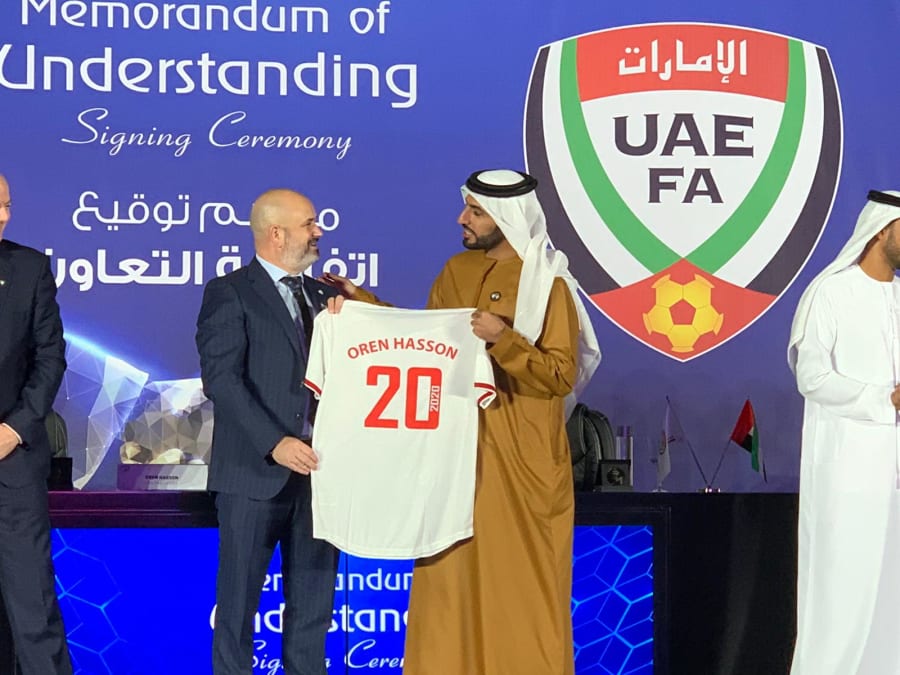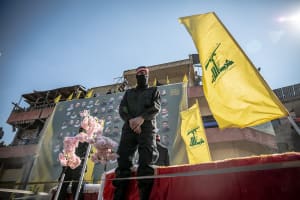Sports diplomacy flourishing between Israel and the UAE

The ties between Israel and the United Arab Emirates continue to thrive, with the latest trend being an increase in cooperation between sports leagues in both countries.
On Monday, FIFA President Gianni Infantino was in Dubai to witness the signing of a cooperation agreement between the UAE Football Association and the Israel Football Association.
According to a statement by the UAE Football Association, the memorandum of understanding projects that there will be “friendly matches for all national teams and clubs” and “joint workshops for the technical and administrative members of the federations.”
Although not specifically mentioned, there is a large financial dimension to such agreements, as they are often accompanied by sponsorships, sales and the kind of personal ties between business leaders which are essential to deal making and profit sharing. The acquisition of 50% of the Beitar Jerusalem Football Club by Emirati business magnate Sheikh Hamad bin Khalifa Al Nahyan is an example of this phenomenon, and there are reportedly more such deals in the works.
Monday’s agreement, along with other related activities, have been bemoaned as a “betrayal of Jerusalem and the Palestinian cause” by prominent journalists and activists in the Palestinian Authority as well as the terrorist organization Hamas, which rules the Gaze Strip, and the terror militia Hezbollah, based in Lebanon. All of these parties have also condemned the increased ties between the UAE and Israel.
However, the Abraham Accords and their resulting normalization of ties in the fields of sports, tourism, academics, art and business have been warmly embraced by many other governments in the region, including Saudi Arabia and Egypt, as well as most world powers.
A statement from Israel’s Ministry of Culture and Sport told The Media Line that the department sees “great importance in promoting and expanding international collaborations in the field of sports, between sports organizations and their counterparts abroad.”
The statement added that, in cooperation with the Foreign Ministry, other such agreements with many other countries were being actively pursued.
“Since the start, both sides have been looking to exchange expertise and to promote this peace agreement with other agreements, especially in terms of sport, which is very dear to people,” Ahmed Alsyaaf, an Emirati analyst, told the Media Line. “Israel used to [have to] travel great distances to participate in football games and other [sporting] events. Now we can exchange experiences with Israel, bring their teams to the UAE, and send our teams to Israel.”
He echoed the sentiments expressed by many analysts in Israel that the agreement would lead to enhanced contacts and bilateral economic opportunities in both countries. Those same sentiments were also echoed by many anti-Israel activists around the world, who lamented that the increased economic and business ties between Israel and its Arab neighbors would deal a devastating blow to the effort to Boycott, Divestment and Sanctions (BDS) movement against the Jewish state.
These lamentations were accompanied by grave warnings that if Israel isn’t subjected to harsh BDS measures, chances of having a peaceful, prosperous future together with the Palestinians will be lost.

The All Israel News Staff is a team of journalists in Israel.














